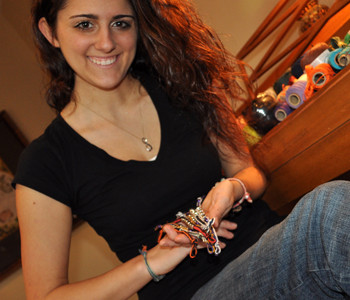Photo by Ralph Jones
A unique music festival took over the streets of Detroit for two days in July. Called Crash Detroit, this festival was started by the Detroit Party Marching Band (DPMB), which wanted to share its distinctive performance style with bands across the country.
DPMB, a “guerilla marching band,” has traditional marching band instrumentation, but most of their performances are unannounced. “A majority of our performances are impromptu,” says DPMB trombonist and festival director James Hartrick. “We really try to blur that line between performers and audience.”
The Crash Detroit festival has been in the works for nearly two years. A group of people began meeting in November 2013 and continued meeting every week to brainstorm missions and write grants. “We have a physical sponsor: the New York Foundation for the Arts,” Hartrick says. “We have some bigger grants from other foundations. Everything else is local.”
The next task was inviting bands. “We kind of identified about 15 bands we wanted to invite and wound up having nine of them perform,” Hartrick says.
Bands from as far as Atlanta, Chicago and Austin, Texas, participated. Day one of the festival featured spontaneous performances by the bands at various locations around the city. Day two consisted of scheduled concerts at Roosevelt Park.
Hartrick thinks that the festival was a huge success. “About two to three thousand people came out,” he says. “Everyone I talked to had a very fun time. [Performers] were really impressed with the organization and planning. We built a lot of great partnerships, not just with sponsors, but also with local businesses.”
This festival may have been the first of its kind, but it certainly won’t be the last. Hartrick already has plans for next year’s festival. “We really hope to expand not only brass band, but also art next year,” he says.
He also hopes to accomplish more than just giving Detroit a fun weekend with this festival. “We really try to make this a festival for performers and bands as much as the audience,” he says. “We want to show kids in school who play a brass instrument that there’s a community that supports this kind of music. It’s something viable you can stick with.”


